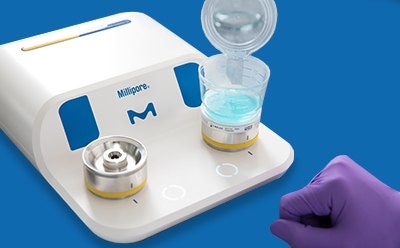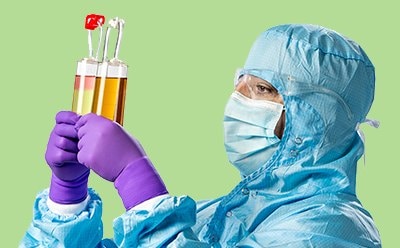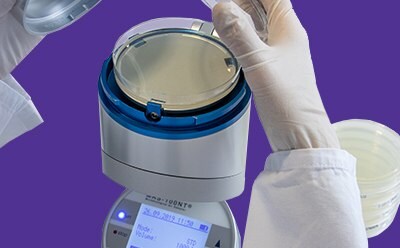Shape Your Future
We help you bring automation and robotics together
Building the Smart Laboratory of the Future
Automation, robotics, and digitalization are leading the pharmaceutical industry to evolve towards machine-driven, continuous, and real-time-monitored manufacturing, and this Pharma 4.0 transformation process is reaching microbiological quality control labs. Traditionally involving a high level of repetitive manual tasks, microbial QC is set to make big strides in productivity, data integrity, and reliability by fully automating test handling and data management.
We at Merck committed to driving this transformation process. In partnerships with specialized engineering and robotic companies we are combining the best of our technologies to jointly develop integrated lab automation solutions in several areas, including:
- Air and surface sampling in clean rooms and isolators (environmental monitoring)
- Media plate incubation with automated colony enumeration
- Fully automated bioburden testing solutions
- Automatic, real-time data capturing for applications like sterility testing
In the course of our laboratory robotics and automation partnerships we are adapting and enhancing our proven microbiology laboratory equipment to make it compatible with QC automation.
Lab Automation to Boost Reliability and Productivity
Automating repetitive, labor-intensive tasks frees up lab technician time for higher value tasks. Laboratory robotics and automation systems operate tirelessly and with precision, and their standardized motions are repeatable. This reduces handling errors and cross-contamination, thus improving the robustness of the test as the risk of false positives and subsequent deviations decreases. Investigation times and costs are lowered and fewer batches lost, ultimately boosting productivity.
Lab Digitalization as an Amplifier of Efficiency Gains
Automated data recording at each step of a test’s workflow, from selecting stored materials to sample collection, testing, incubation, and result reporting, guarantees full data integrity and traceability. On top of ensuring compliance this enhances data analytics to track trends, spot deviations, and ease investigations into out-of-specification results. Digitalization alone improves lab efficiency by optimizing scheduling and reducing manual documentation and investigations. In conjunction with QC lab automation, it delivers even greater value and cost savings.
Customer Participation in Development
To better understand customers’ specific challenges, constraints, and needs, a user advisory group (UAG) of QC professionals at leading pharmaceutical companies supports us with feedback on the laboratory automation solutions we develop. We invite them to inspect our prototypes and discuss with us where they see the need for improvements. After implementing changes, we invite them once again to review. This iterative process helps us to refine our QC automation solutions.
Microbial Quality Control Workflow
Bioburden Testing
Sterility Testing
Environmental Monitoring
Request Information
Complete the form below to be contacted by one of our experts. * = required
Pour continuer à lire, veuillez vous connecter à votre compte ou en créer un.
Vous n'avez pas de compte ?

